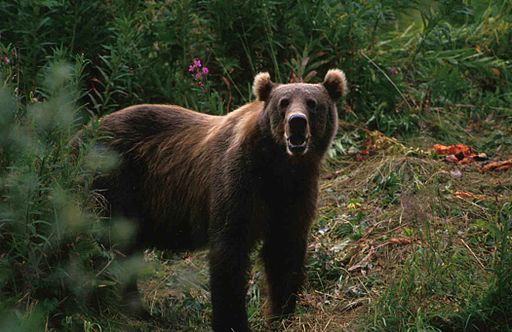 By Hollingsworth John and Karen, U.S. Fish and Wildlife Service [Public domain], via Wikimedia Commons
By Hollingsworth John and Karen, U.S. Fish and Wildlife Service [Public domain], via Wikimedia Commons
Researchers are spending a lot of time exploring how the microbes living in our guts impact our health. In a new study published in Cell Reports, researchers wanted to know how the gut microbes of wild brown bears changes between summer and hibernation. They discovered that during the summer, the microbial species present in the gut are more diverse and are of the type that helps store energy. In fact, when the research team gave the microbes to rodents, the rodents gained weight. This seasonal variation in the species of microbes may be what helps prevent bears from developing diabetes or other disorders as they gain weight.
These findings are also really interesting as there has been a report of weight gain in a patient after having received a fecal transplant from an overweight donor (Alang and Kelly, 2015). So naturally, researchers are currently exploring whether "poop pills" from healthy donors can promote weight loss in obese subjects:
Sources:
Alang N, Kelly CR. Weight Gain After Fecal Microbiota Transplantation. Open Forum Infect Dis 2(1): 2015. doi: 10.1093/ofid/ofv004
Sommer F, Ståhlman M, Ilkayeva O, Arnemo JM, Kindberg J, Josefsson J, Newgard CB, Fröbert O, Bäckhed F. The Gut Microbiota Modulates Energy Metabolism in the Hibernating Brown Bear Ursus arctos. Cell Resports. DOI: http://dx.doi.org/10.1016/j.celrep.2016.01.026
- Log in to post comments
